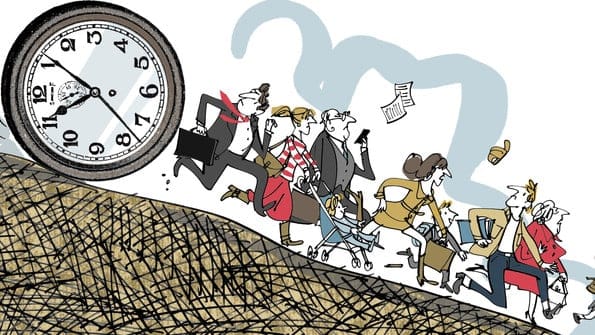Why is everyone so busy?
Time poverty is a problem partly of perception and partly of distribution

THE predictions sounded like promises: in the future, working hours would be short and vacations long. “Our grandchildren”, reckoned John Maynard Keynes in 1930, would work around “three hours a day”—and probably only by choice. Economic progress and technological advances had already shrunk working hours considerably by his day, and there was no reason to believe this trend would not continue. Whizzy cars and ever more time-saving tools and appliances guaranteed more speed and less drudgery in all parts of life. Social psychologists began to fret: whatever would people do with all their free time?
This article appeared in the Christmas Specials section of the print edition under the headline “Why is everyone so busy?”
Christmas Specials
December 20th 2014- The rule of three
- The uses of history
- Conquistador of Metroland
- The flight of the turkey
- I will survive
- Perfidious America
- On the trail of Hernán Cortés
- The man who thought Gandhi a sissy
- Empire of the pig
- Ancient and modern mariners
- Why is everyone so busy?
- They also served
- The wild bunch
- Handicapped
- The baseball-card bubble
- Only fools and horses
- The loneliness of Tony Blair

From the December 20th 2014 edition
Discover stories from this section and more in the list of contents
Explore the edition
The year as told through illustrations
Our art department staff looked back to highlight some of their favourites from the past year

A year of our visual journalism
In 2024 we found new ways to cover a range of topics, from war to the future of energy—and, of course, elections.

What a 70-year-old firebreathing lizard reveals about humanity
Each incarnation of Godzilla reflects the fears of its time
The beginning of the end for oil in California
What happens to an oil town when the drilling stops?
Why do small children in Japan ride the subway alone?
The pluses and pitfalls of the world’s most disciplined primary schools
A network of volunteers is rescuing dogs and cats by bringing them north
Tens of thousands of animals are moved to new states each year, so they can find homes





